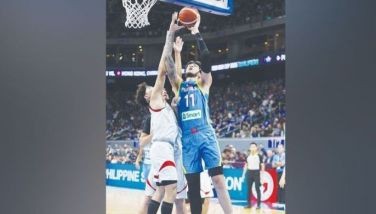Court of Appeals stops RTC order for Ermita to testify in Magdalo case
MANILA, Philippines - Executive Secretary Eduardo Ermita has been spared by the Court of Appeals (CA) from testifying at the Makati regional trial court (RTC) in the coup d’ etat case against 30 Magdalo soldiers who participated in the takeover of the Oakwood Premier Hotel on July 27, 2003.
This, after the Special 17th Division of the appeals court stopped Makati RTC Branch 148 from compelling Secretary Ermita to testify in the case with an order signed by CA Justice Normandie Pizarro quashing the subpoena issued last April 14 by RTC Judge Oscar Pimentel.
In a 28-page decision, the CA held that Ermita, who was then the presidential adviser on peace process, “rightfully invoked executive privilege” in contesting the order issued by the RTC since the information being sought from him by respondents would put the national interest and security at risk.
The Magdalo soldiers are seeking Ermita’s testimony in order to elicit information, particularly the atrocities and peace negotiations in Mindanao and the irregularities in the government and the Armed Forces.
The rebel soldiers claimed that Ermita’s testimony would show the compelling reason that prompted them to seize Oakwood and air their grievances.
However, the CA held that the soldiers’ real motive in seizing Oakwood cannot be established through Ermita’s testimony since they are the ones who truly know what they had in mind when they seized Oakwood.
“Whatever information that may be elicited from the latter will not prove the private respondents’ real motive, for motive is intrinsic in nature, a state of mind which we cannot simply probe into as it is hidden in one’s conscience. Simply said, intrinsic as it is, it is only the private respondents themselves who can best have the say-so on what really were their compelling reasons in staging their concerted act,” the CA said.
The respondents’ claim that they only seized Oakwood to air their grievances, according to the CA, may be established through their testimonies, their co-accused or colleagues, and of the persons who may have personal knowledge of their motive or those who took part in their meetings prior to the takeover of Oakwood.
Ermita has refused to appear before the court saying that information sought to be elicited from him involves military and security concerns that call for state secrecy and are covered by executive privilege.
President’s alter ego
The CA cited the Supreme Court ruling in Senate vs. Neri in upholding the executive privilege of Ermita. It stressed that all three necessary requirements for the privilege are present in the case, such as the protected communication must relate to a quintessential and non-delegable presidential power; the communication must be authored or solicited and received by a “close adviser” of the President or the President himself; and claim of executive privilege may be denied only if there is a showing that the information sought to be obtained likely contains important evidence not available elsewhere.
The CA explained that the President, being the constitutionally mandated commander-in-chief of the Armed Forces, ultimately has the decision-making powers concerning military related matters.
Such power is considered as a quintessential and non-delegable power, because although she designated Ermita as presidential adviser on peace process, the latter’s negotiation and peace talk agenda in Mindanao were definitely subject to her approval.
On the second element, the CA said there is no doubt that executive privilege extends to Ermita as alter ego of the President.
The CA added that the questions to be asked Ermita would be prejudicial to the interest of state secrecy as the respondents would be exposing certain information on the government’s strategic planning on the pace talks in Mindanao and its diplomatic discussions with Middle East countries which are keen on helping in the development of the area.
“It cannot be denied that the matters sought to be obtained from Executive Secretary Ermita involve, among others, communications and instructions relayed to him by the President. It deals with the negotiations and peace talks engaged in by Executive Secretary Ermita in Mindanao. With these in mind, it is not difficult to perceive the danger or impropriety of placing him on the witness stand considering that it would result in the disclosure of the President’s communications and instructions on the military and diplomatic matters, including the actual implementation thereof,” the CA said.
The CA also stressed that under Section 24, Rule 130 of the Revised Rules of Court or the rule on privileged communication, a public officer cannot be compelled to testify on matters of communications made to him in official confidence if public interest would suffer from such disclosure.
“We find and so hold that the RTC has grossly abused its discretion amounting to lack or excess of jurisdiction in disregarding the executive privilege accorded the executive secretary of the State in it’s having issued the assailed orders and the subpoena,” the CA said.
Associate Justices Rosalinda Asuncion-Vicente and Antonio Villamor concurred in the ruling.
- Latest
- Trending






























